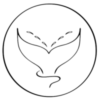Our project
The website Literature.green originated from the urgency to rethink the relation between literature and nature, in an era when human impact on the environment more than ever jeopardizes life on planet Earth. We believe that literature constitutes a vital element in ecological thinking and want to contribute to the examination of its specificity and encourage its dissemination.
Hence, the principal objective of the project can be summarized as follows: we aim to study how contemporary fiction – novels, short stories and other narratives – develops a literary imagination intended to forge new links with nature and the environment. Building on earlier studies in the field of ecopoetics, strongly focused on the analysis of textual complexity, our research team will study the role of literary imagination in the representation of space and place, of the non-human, of the “en-route”, of ecological disasters and scientific knowledge, while taking into account the tension between the global character of these issues and their local dimensions.
Since we also aim to develop the link between the literary research and literary creation on this theme, we created a space for artists working on the ecological question to express their thoughts in the section “Words from the Writers”. It is no coincidence that we used the photographs of the industrial dumping site in Zelzate by the Belgian photographer Titus Simoens as visuals for our website; they cleverly interrogate our attitude towards pollution by playing with perceptual ambiguities (click here to read more)
The website Literature.green is linked to a research project entitled “Literature, Environment and Ecology: An Ecopoetic Approach to Contemporary French, Germanophone, Anglophone, and Italian Narrative Prose”, funded by the University of Ghent. In fact, this cosmopolitan project, which takes place in four different languages and through a transnational perspective, is also well rooted in the context where it was created (see here).
If you want to join our team as an associate member, please go to the “Join us” page.
